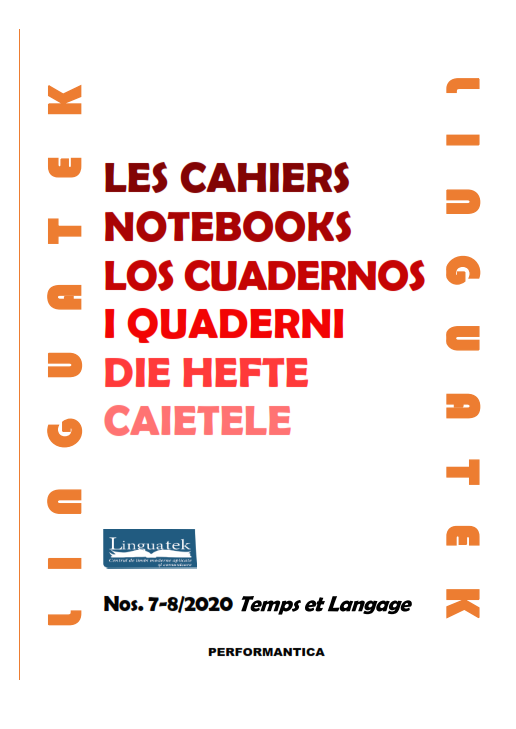Syntaxe narratologique du temps et démystification de l’identité dans La’afal. Ils ont dit… de Charles Sale :
entre réquisitoire politique et plaidoyer éthique pour le vivre ensemble
Narratological Syntax of Time and Demystification of Identity in La’afal. Ils ont dit… by Charles Sale: Between Political Indictment and Ethical Plea for Good Cohabitation
Author(s): Pierre Suzanne Eyenga OnanaSubject(s): Studies of Literature
Published by: Editura Universității Tehnice “Gheorghe Asachi” din Iași
Keywords: narratology; diegesis; living together; colonization; ethics;
Summary/Abstract: Charles Sale’s La'afal. Ils ont dit... is the story of an atypical socio-political journey of a debonair politician who became irritable by the force of things. Its peculiarity lies in the diegetic strategies that frame it. A fragmented narrative, woven around a set of micro-narratives built around the sinuous path of La'afal in the construction of his identity, the story exposes the violent practices in vogue during colonization. The present contribution questions the significant axes that articulate the narrative syntax of the category of time offered in La'afal. Ils ont dit... The work has three parts. Examination of the time of history, the first identifies the places of readability by questioning the occurrences that relate to the time of colonization as well as the war of liberation led by France with the help of Africans. The second part examines the stakes involved in the time of narration, while the last part looks at the meaning revealed by the interaction between space and time, when we know, since Bakhtine and, closer to us, Thérenty, that this diptych, which is fertile in the fictional plot, is inseparable in so far as it actually underpins the diegesis. This is why the temporal maneuvers referring to anachronisms (analepses and prolepses) in the quest for the new language suggested by Charles Sale are the subject of the last part of the study. Clearly, the present work, carried out from the narratological perspective printed by Genette in Figures III, addresses the ethical dynamics that construct the Cameroonian author's scriptural imagination, with the aim of showing that despite the passage of time, African man remains prisoner of a linguistic malaise: his repulsive psychological malaise, the exorcism of which proves to be imperative in view of the emergence of a new homo sapiens who embodies virtue, as well as the happiness of sharing.
Journal: LES CAHIERS LINGUATEK
- Issue Year: 4/2020
- Issue No: 7-8
- Page Range: 24-39
- Page Count: 16
- Language: French

